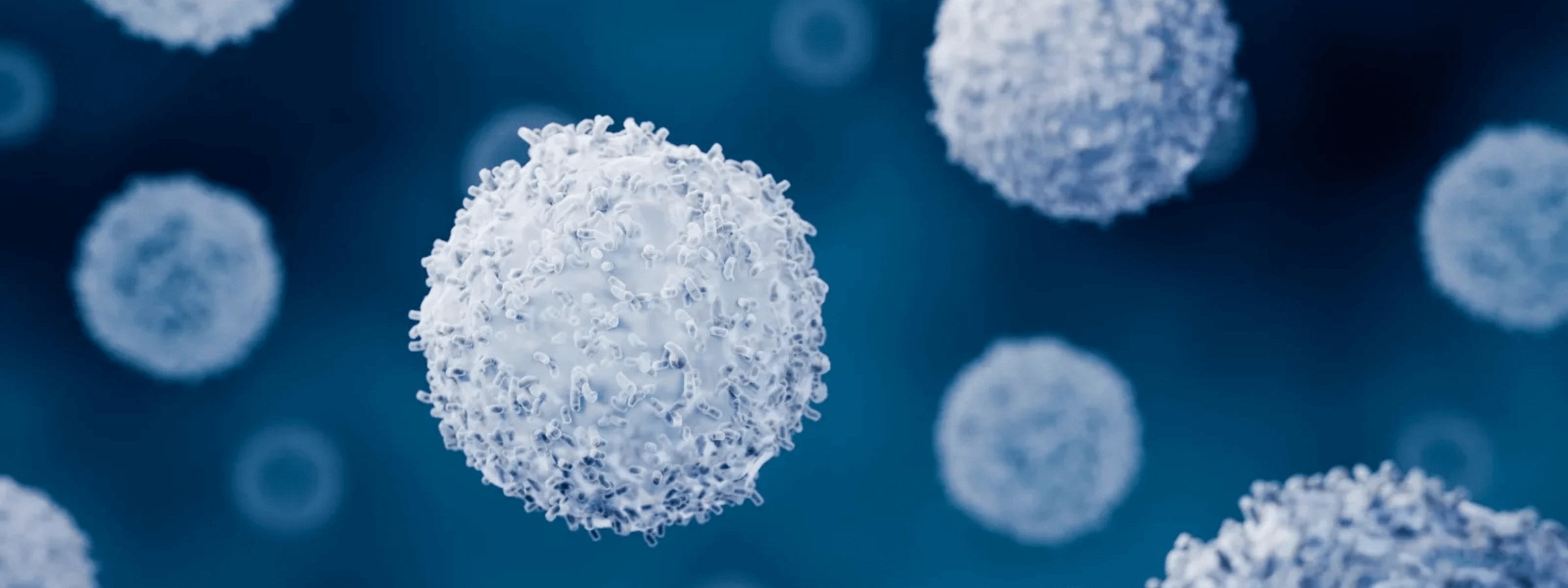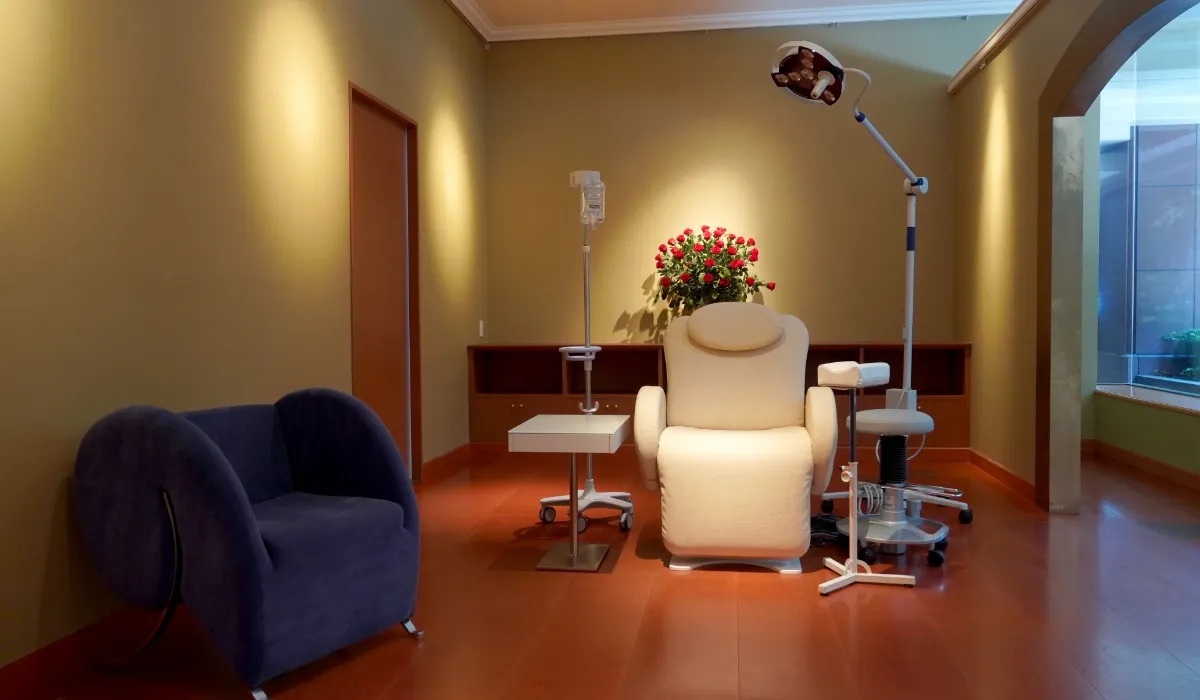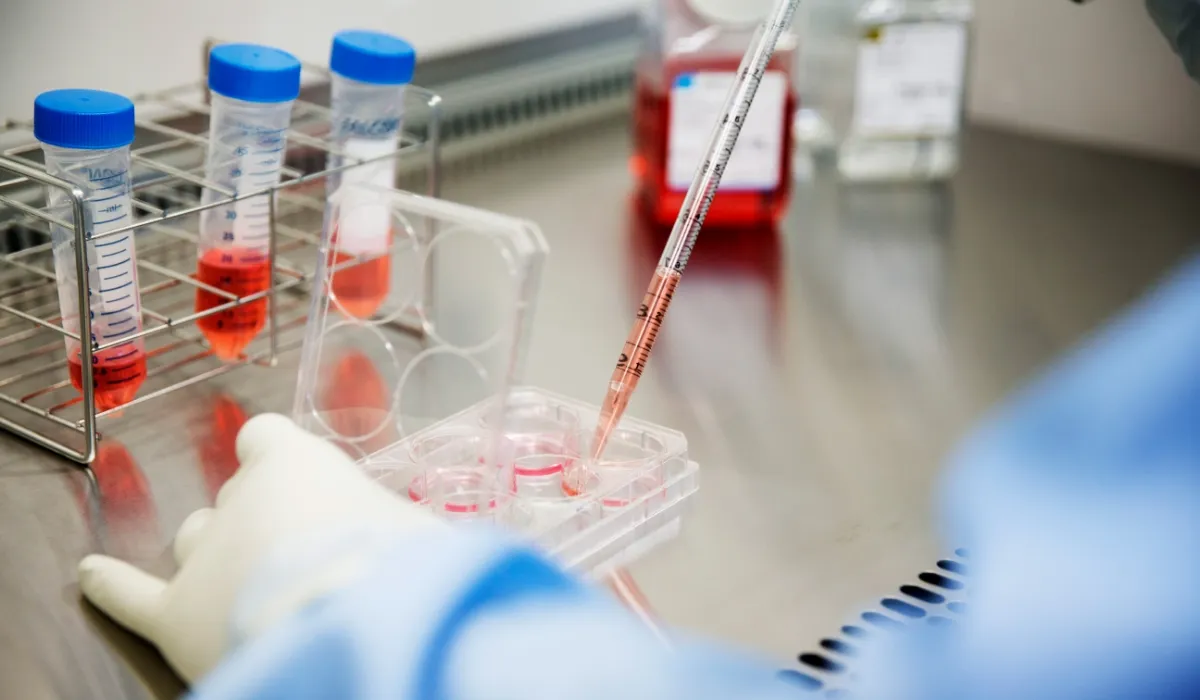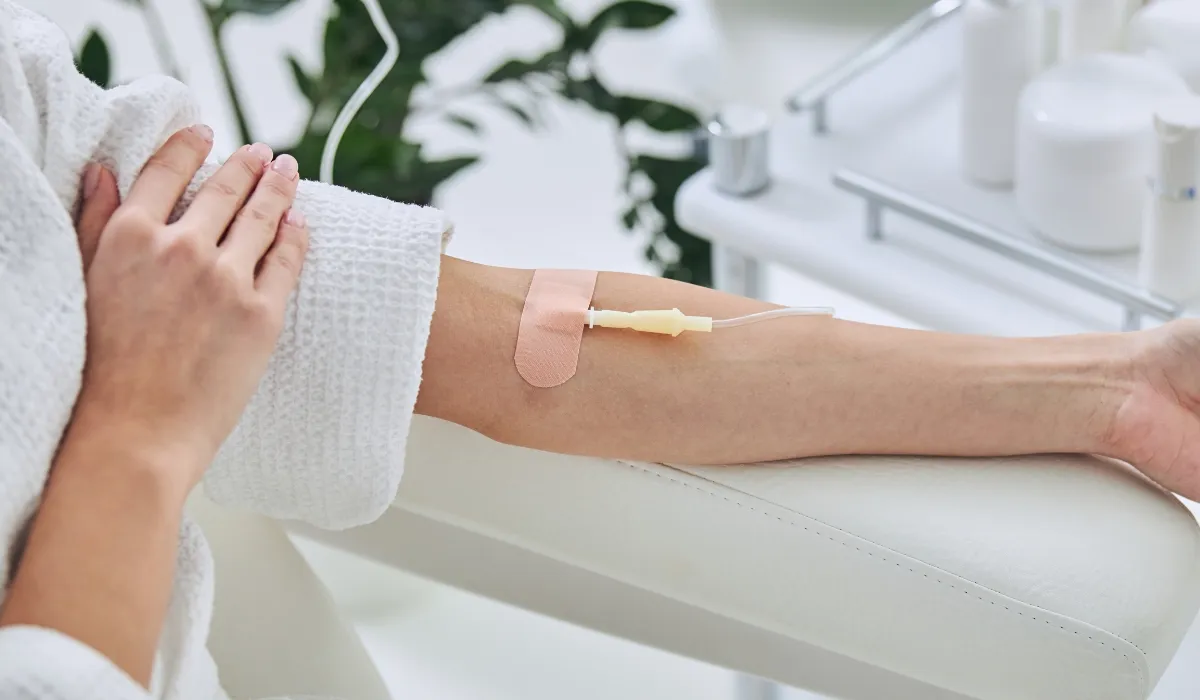Immune Cell Therapy

This therapy involves collecting your immune cells, culturing and activating them to strengthen their ability to fight cancer, then reinfusing them through IV. Also known as Autologous Immune Enhancement Therapy (AIET), it is effective for treating, preventing, and reducing cancer recurrence.
It is a treatment that imposes minimal burden on the body and provides a high level of safety.
A Powerful Option for Cancer Treatment
Immune cell therapy mainly focuses on cancer treatment.
For individuals currently undergoing cancer treatment, combining it with standard therapies such as surgery, drugs, or radiation is expected to improve treatment effectiveness.
Furthermore, even for those who have completed cancer treatment, receiving regular immune cell therapy has been reported to help prevent recurrence.
For people in the age group most vulnerable to cancer, regular intravenous infusions used preventively are effective.
Furthermore, recent research has highlighted its role in removing aged cells, resulting in more people receiving treatment for body maintenance. Combining stem cell IV therapy is also an option.
* Stem cell IV therapy is not available for individuals undergoing cancer treatment.

Natural Killer (NK) Cell Defense Role
Natural Killer (NK) cells are immune cells that constantly patrol the body for abnormalities. They play a crucial role in detecting abnormal cells, such as cancer or virus-infected cells, early on and attacking and eliminating them with their potent killing ability.
NK cells play a key role in the innate immune system (natural immunity) and can respond broadly to different types of cancer. Additionally, since they work alongside the adaptive immune system, they are expected to function effectively when a specific type of cancer is identified.
It is known that a decline in NK cell function or a decrease in their numbers can potentially weaken the body's defense abilities.
Single Blood Draw vs. Apheresis Blood Draw
For immune cell therapy focused on cancer prevention, recurrence prevention, and health maintenance, our clinic uses a "single-draw blood collection" method to reduce patient burden. This method combines the collection of cultured immune cells for infusion with blood collection for the next treatment session. This approach decreases the number of blood draws and allows patients to undergo multiple treatment sessions comfortably.
On the other hand, for patients currently undergoing cancer treatment, we may choose a method called "apheresis blood collection" using a blood component collection device. This method selectively collects lymphocyte groups, such as NK cells that can attack cancer cells, from blood circulating outside the body, while returning other blood components to the patient. This technique lowers the risk of anemia or bleeding tendencies and allows us to gather enough therapeutic lymphocytes for six treatments in a single blood collection. The immune cells cultured and prepared this way are then administered intensively at the optimal time for cancer therapy, aiming to eliminate cancer cells and improve treatment effectiveness. A key feature is boosting immune function at precisely tailored times, such as before or after surgery, or during chemotherapy and radiation therapy.
Furthermore, our clinic takes a long-term approach to cancer and recurrence prevention. We offer personalized support based on nutritional and gut environment analysis to strengthen your immune system. We create treatment plans tailored to each person, helping you feel more confident and at ease during your treatment.
*Apheresis blood collection usually takes 1-2 hours, depending on blood flow and vascular conditions, making it generally suitable for patients undergoing cancer treatment.
*The administered immune cells may also affect patients receiving immune checkpoint inhibitor therapy. Therefore, treatment is performed under closer monitoring than usual.
Our Technology for Cultivating Immune Cells
Unlike stem cells, immune cells are already mature cells with specific functions. Therefore, endlessly multiplying a single type of immune cell is difficult, and there are limits to their cultivation. Usually, cell count and function peak about three weeks after starting cultivation, then gradually decline.
Our clinic mainly focuses on NK cells, which have strong attack capabilities against cancer cells. We assess each cell type's killing ability and cell count and use them as indicators of treatment effectiveness (killing index). Additionally, since immune cells' original number and properties differ from patient to patient, we offer three different cultivation methods. We aim to efficiently grow each patient's cells using the best method for them.
Using these scientifically backed culture techniques, we optimize treatment effectiveness from the collected blood samples.

Strict Cell Quality Control
We follow strict quality control procedures that meet international standards at our large-scale cell processing facility to ensure high-quality immune cells. We carefully perform various safety tests, including sterility testing, endotoxin testing, and mycoplasma testing.
Furthermore, our proprietary cryopreservation technology reduces temperature fluctuations during cell storage, ensuring the quality remains stable even after long-term preservation.
Through this thorough quality control, we offer a report detailing the types and quantities of cells present before administration, ensuring patients can receive treatment confidently.

A Reassuring Treatment Process
First, our physicians perform detailed consultations to develop personalized treatment plans to maximize effectiveness. Online consultations are also offered for patients traveling from abroad or farther away.
For single blood draws, approximately 50-60 cc are collected; for apheresis blood draws, approximately 100 cc is collected. Patients traveling from distant locations can stay at a hotel, allowing them to receive treatment with peace of mind.
The preparation of cell cultures takes about 3 weeks.
The IV infusion usually takes around 30 minutes. Relax and enjoy your treatment in the comfortable environment unique to our hotel-based clinic.

Treatment Process



Blood Collection
For single-donation blood collection, approximately 50-60 cc is collected; for apheresis blood collection, approximately 100 cc is collected.

Immune Cell Cultivation
At the Cell Processing Facility (CPF), immune cells—primarily NK cells—are separated, cultured, and activated under strict control. The culture process takes about 3 weeks. Cells can be stored by cryopreservation, which allows scheduling of administration at your preferred time after the initial 3 weeks. (Reservations must be made at least 2 weeks before treatment.)

Administering immune cells
Immune cells are given through an IV drip. To ensure safety, a physician administers the drip following strict safety protocols, per the methods and timing outlined in the Regenerative Medicine Provision Plan.

Treatment Frequency and Suggested Number of Sessions
Based on your treatment goals, we will suggest the appropriate treatment frequency and the recommended number of sessions during your consultation.
For those aiming for prevention or health promotion, it is common to continue regular IV infusions roughly every 2-3 months. We will design a manageable treatment plan suited to your schedule, including various cancer risk screenings and tests for early detection.
We offer intensive therapy scheduled to align with standard treatments for cancer treatment. Depending on the type and stage of the cancer, we might suggest daily administration.
For those looking to prevent recurrence, we will discuss the appropriate treatment frequency and number based on the recurrence risk.
Fees
NK Cell Infusion
1 treatment ¥990,000
4-treatment course ¥3,630,000
6-treatment course ¥4,950,000
※1 After the above cell storage period, the following annual storage fees apply:
1 treatment each: ¥11,000
※2 If blood is collected via apheresis, an additional ¥1,100,000 apheresis procedure fee applies.
※3 This treatment is not covered by public health insurance (private treatment).
Important Notes Potential Risks and Side Effects
| Temporary fever or fatigue, pain or bruising at the injection site, allergic reactions, etc. |
Frequently Asked Questions
-
How long does it take before the first administration?
3-week preparation period is needed for cell culture, from blood collection to the first administration.
-
How many treatment sessions are needed?
The number of sessions and intervals will be decided in consultation with your physician, based on your symptoms and goals, such as cancer treatment, prevention, recurrence prevention, or health promotion.
-
Are there any side effects or risks?
Temporary fever, fatigue, pain, or bruising at the injection site, and allergic reactions have been reported. This is a safe treatment since immune cells like NK cells are naturally present in the blood.
However, when combined with immune checkpoint inhibitors, there is a potential for an unexpected boost in immune response. Therefore, treatment is conducted under closer observation.
While implemented with thorough safety management, please consult your physician if you have any concerns.
| Approval under the Pharmaceuticals and Medical Devices Act | Not approved (Treatment is carried out based on a Type III Regenerative Medicine Plan submitted to the Minister of Health, Labour and Welfare under the Safety of Regenerative Medicine Act, etc.) |
|---|---|
| Source | Immune cells, such as NK cells, collected from the patient's blood, are cultured and processed at a domestic cell culture and processing facility. |
| Availability of domestically approved pharmaceuticals | No domestically approved pharmaceuticals have equivalent efficacy. |
| Safety Information in Other Countries | Clinical studies have been conducted in the United States, Europe, and other regions, with a low reported incidence of serious side effects. However, individual responses vary, and mild side effects such as fever, chills, and fatigue may occur. |






